







 |
||||||
 |
 |
 |
 |
 |
 |
 |
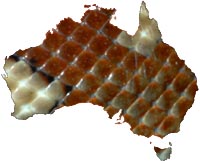
| About: Centralians are one of
the larger species of carpet python, attaining
around 8 ft as adults. They are a red/brown
carpet python with light cream banding. These
snakes are lighter on the anterior end and
darken caudally. This
appearance is also very appealing to
keepers, which makes them popular
animals in herpetoculture. While
most specimens are a brick red
coloration, some bloodlines are more
orange-red in appearance. Striped
and hypomelanistic individuals are
also available in captivity. Range: As it's name implies, the Centralian pythons are found in the center of Australia. Their range encompasses Alice Springs and the surrounding areas of the MacDonnell ranges of central Australia. Habitat: One of the most influential pictures is of a centralian python overlooking a gorge in the desert. These pythons are often found associated with large river red gum trees along seasonal watercourses. They will also utilize the rocky areas of red quartzite and sandstone of the magnificent gorges found through this area. Such habitat is found in many of the gorges in Central Australia near Alice Springs. Ormiston Gorge (pictured below) is prime habitat for these magnificent pythons. Natural History Notes: These amazing pythons are adapted to life in the harsh deserts of the Australian interior. They have fine scalation as an adaptation to retain moisture in the harsh environment with infrequent water supplies. Their red coloration helps them blend into the red sand and rocks of the countryside. They hunt for mammalian and avian prey in the large trees. The frequency of encounters on the ground is dependent on the seasons, and they are more commonly found outside of the trees when the grass seeds and grains are less abundant. This is to follow prey items that are in the greatest abundance. They are hardy snakes and will take a nice variety of prey items in captivity. Clutch sizes are relatively large with this species. Wild females have been observed to use hollow branches for incubation of eggs. More information on their care and breeding can be found on the M. bredli care page. |
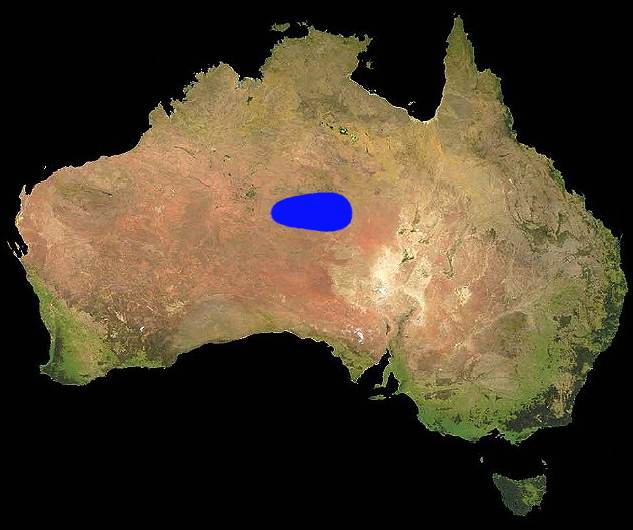 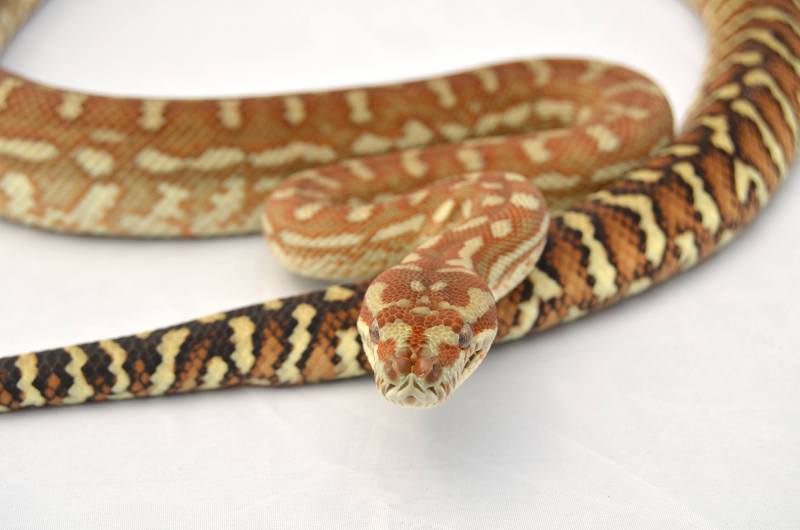
Afors line female
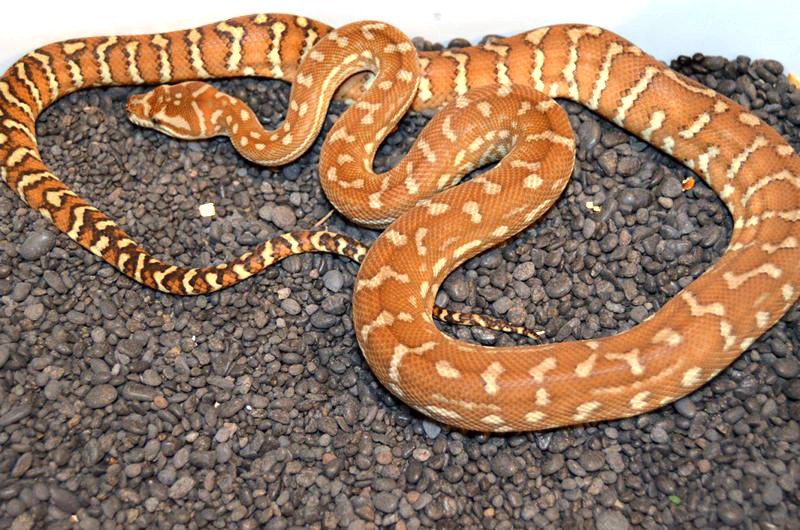
Afors line male
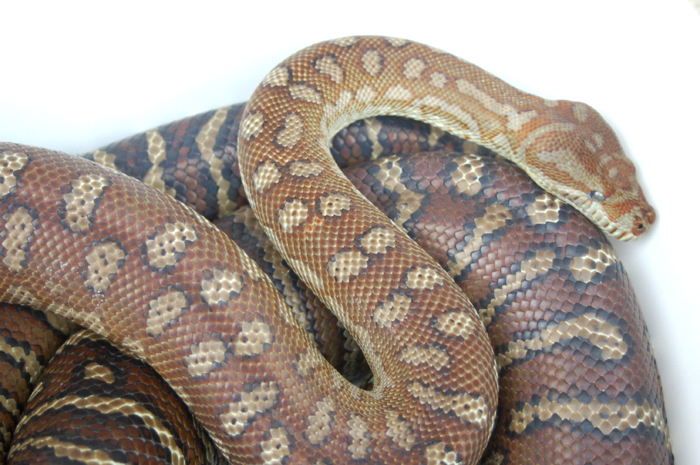
Lazik line female
|
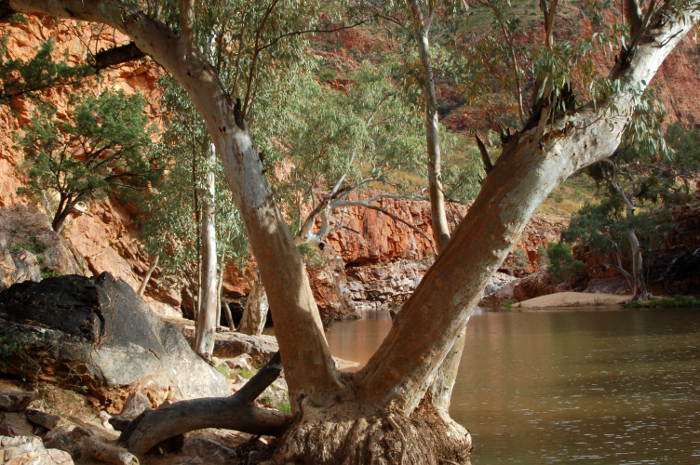 M. bredli utilize the river red
gums in Ormiston Gorge, NT
|
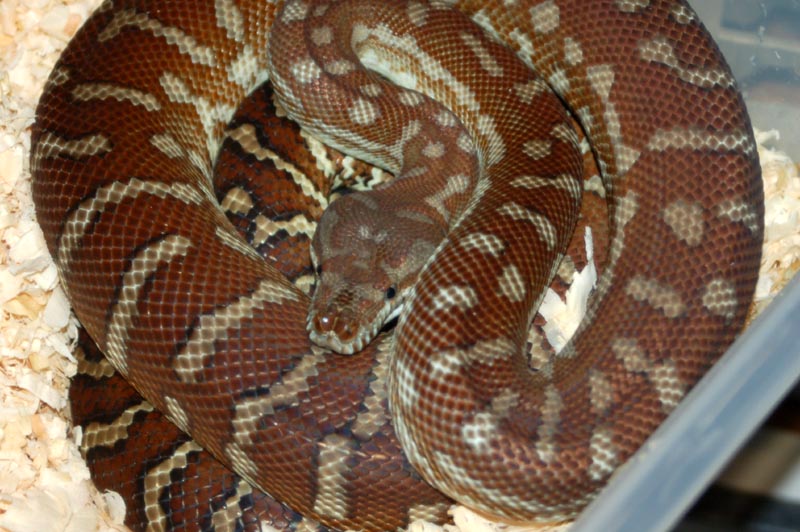 Price line female
|
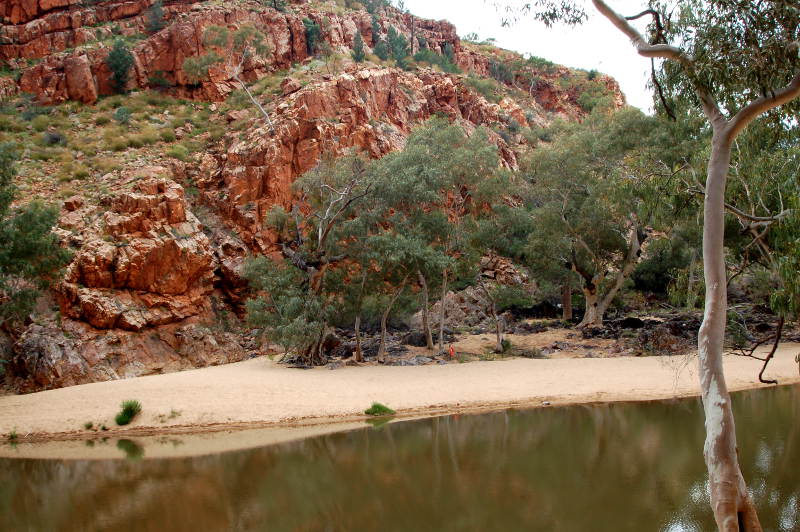 The red rocks of the gorges
serve as shelter during cooler months
|
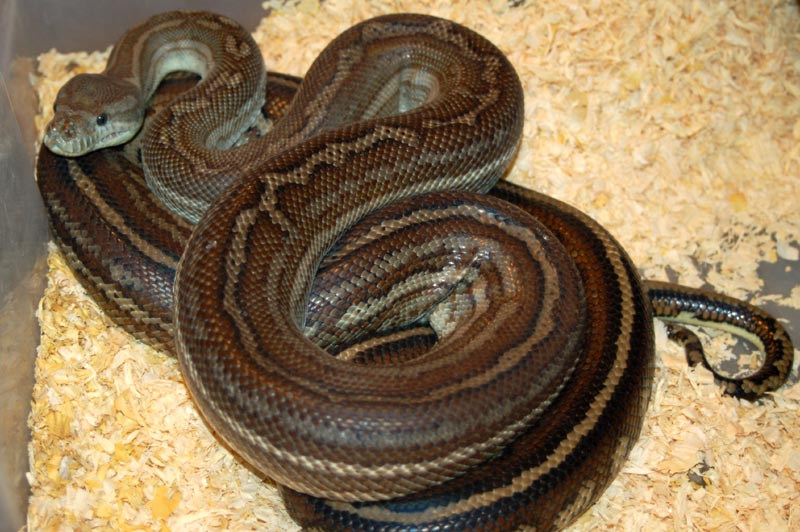 Lazik line striped male
|